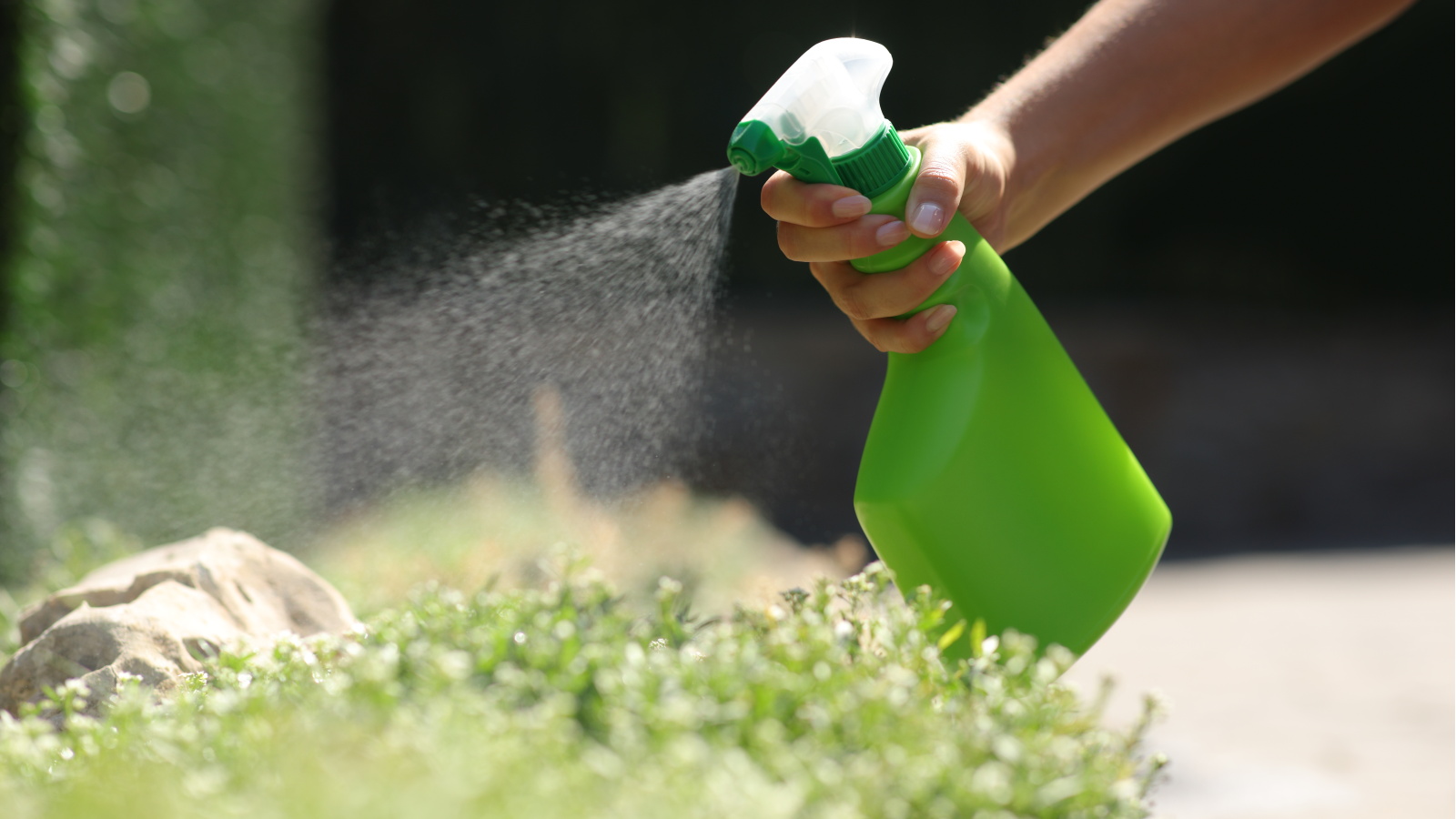Among the hardest jobs of animal husbandry and agriculture is pest control. Chemical pesticides, although performing very well, are found to carry risk elements like chemical residues, resistance, and environmental damage. Plant chemicals, which are coming into favor as increasing numbers of people look for natural, environment-friendly solutions, are to which scientists and farmers are looking for help to promote green cultivation techniques.
A possible answer is allicin powder, a bioactive compound extracted from garlic (Allium sativum). Known for millennia as a medicinal and antimicrobial agent, allicin now is gaining attention because of its pest-repellent, antifungal, and antibacterial properties. This article explores how allicin powder works, its use in pest management, and evidence-based science that supports its use.

What is Allicin Powder?
Allicin is a sulfur compound which is formed when garlic cloves are crushed or chopped, which activates the alliinase enzyme to convert the alliin into allicin. Fresh allicin is not stable and degrades rapidly, but stabilized allicin powder is stable for long-term use in commerce.
Major attributes of allicin powder as a pest control agent:
- Massive antimicrobial action against bacteria and fungi.
- Effective insect-repellency because of its pungent sulfurous smell.
- Non-toxic and biodegradable with no residue.
- Useful in agriculture, livestock housing, aquaculture, and domestic pest control.

How Allicin Powder Controls Pests?
Allicin suppresses pests and disease through several mechanisms:
- Repels insects – Its pungent garlic smell overpowers plant aromas, confusing pests like aphids, whiteflies, and beetles.
- Kills or suppresses pathogenic microbes – Allicin suppresses microbial enzyme equipment through action with thiol (–SH) groups of protein, inhibiting growth of fungi and bacteria (Ankri & Mirelman, 1999).
- Prevents nematodes – Research indicates allicin prevents parasitic nematodes in soils, safeguarding plant roots (Gupta & Sharma, 2014).
- Environmentally friendly – Allicin breaks down naturally without contaminating soil or water, unlike most man-made pesticides.

Applications of Allicin Powder for Pest Control
1. Agriculture and Horticulture
Allicin powder is a powerful natural pesticide in agriculture. Allicin powder prevents insects, fungal infections, and nematode infections in plants.
Instructions:
- Mix 1–2 g of allicin powder with 1 liter of water.
- Spray on plant leaves, stems, and soil.
- Apply every 7–10 days, particularly after rain.
- Targets: Aphids, mites, thrips, nematodes, and fungi like Fusarium and Aspergillus.
2. Nematode Pest Control and Soil Health
The nematodes, which are soil-dwelling pests, lower the yields of crops considerably. Allicin disrupts the microbial ecosystem in the soil by suppressing nematodes while enhancing beneficial microflora.
Usage:
- Combine 2–5 g per kg of soil prior to planting.
- Alternatively, use diluted concentrations through irrigation.
3. Livestock and Poultry Environmental Conditions
Flies, mites, and parasites are common poultry farms and barn issues. Allicin naturally lowers pest pressure without causing damage to animals.
Application:
- Dilute 0.5–1 g/l water and spray on poultry coops, bedding, and barn walls.
- Can be reused to minimize parasite accumulation.
4. Aquaculture applications
Parasitic and bacterial infections are common issues for aquacultures. Allicin supplementing water or food can decrease pathogen burden and enhance fish overall health.
How to use:
- Mix 100–200 mg/kg with fish feed.
- Apply controlled water treatment in consultation with aquaculture professionals.
5. Domestic Pest Control
Allicin powder is a safe, non-toxic substitute for chemical sprays on a small scale.
Use:
- Dust lightly on infestation areas (kitchen cracks, crevices, or garden beds).
- Dissolve 1 g in 500 ml of water for a spray and apply where pest is encountered.
- Use to kill ants, cockroaches, mosquitoes, and other domestic pests.

Safety and Precautions
Although allicin powder is safe and biodegradable, some regulations allow safe use:
- Prevent excessive usage since concentration may have a detrimental effect on plant growth or desirable insects.
- Use in the morning or late evening to minimize effect on pollinators.
- Keep in a cool, dry place for stability.
- Use the wearing of gloves and masks when dealing with large quantities to prevent irritation.

Benefits of Using Allicin Powder for Pest Control
- Environment-friendly – No toxic residues on soil, plant, and water.
- Widespread action – Insecticidal, fungicidal, nematicidal, and bactericidal.
- Compatible with organic agriculture – Accepted by most sustainable agriculture practices.
- Economical – Inhibits the use of synthetic pesticides and animal drugs.
Non-toxic to animals and humans if used rightly.

Challenges and Limitations
- Issues of stability – Low-quality allicin products are subject to facile deterioration.
- Precision dosing – Precautions necessary for predictable outcomes.
- Spare large trials – Additional studies necessary to standardize treatment in various crops and agricultural systems.

Conclusion
Powdered allicin is a natural, effective, and safe pest control product for agriculture, animal husbandry, aquaculture, and household use. Due to its potent insect repellent, antifungal, and antibacterial activities, it allows farmers and homes to lower chemical pesticide application while keeping the environment free of risk.
With increasing need for organic and sustainable pest control methods, allicin powder is a jack-of-all-trades product that is not only kind to productivity but also the environment.
References
Ankri, S., & Mirelman, D. (1999). Antimicrobial properties of allicin from garlic. Microbes and Infection, 1(2), 125–129.
Bisen, K., Keswani, C., Mishra, S., Saxena, A., & Singh, H. B. (2014). Perspectives for integrated pest management using plant-based products. Applied Microbiology and Biotechnology, 98(22), 10161–10173.
Gupta, P., & Sharma, P. (2014). Efficacy of garlic-based formulations against root-knot nematode Meloidogyne incognita. Journal of Biopesticides, 7(1), 12–18.
Hanieh, H., Narabara, K., Piao, M., Gerile, C., Abe, A., & Kondo, Y. (2010). Modulatory effects of two levels of dietary Allium sativum on immune responses in White Leghorn chickens. Animal Science Journal, 81(6), 673–680.
Lee, J. H., Cho, J. Y., Lee, H. J., & Kim, Y. S. (2012). Antimicrobial effects of garlic allicin against fish pathogenic bacteria. Fisheries Science, 78(3), 611–618.










